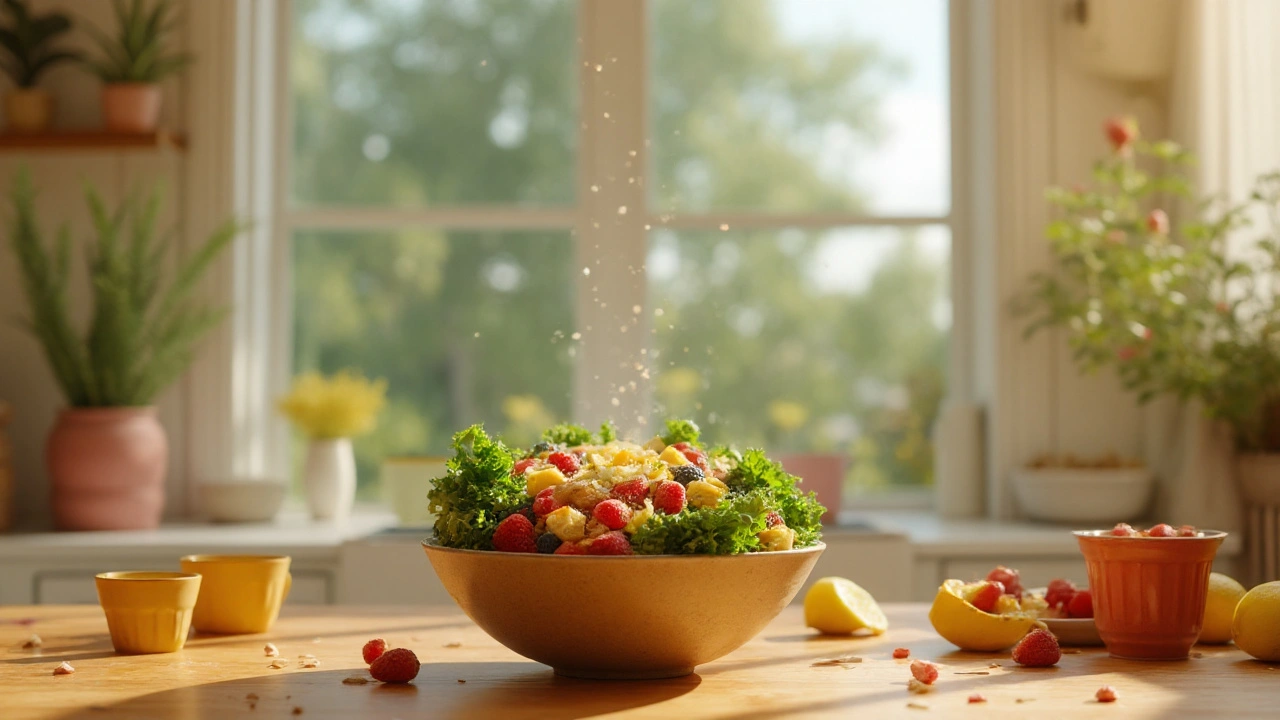
If you’ve ever heard the term "detox diet" and wondered if it’s just a fad, you’re not alone. A detox diet is basically a short‑term eating plan that focuses on whole, minimally processed foods to give your digestive system a break and support natural detox pathways in your liver and kidneys. It’s not about starving yourself or buying expensive juice cleanses; it’s about swapping out processed snacks for nutrient‑dense options that fuel your body and help clear out built‑up waste.
Traditional diets usually include a mix of carbs, proteins, and fats from all sources, including sugary drinks, refined grains, and fast food. A detox plan trims those down and emphasizes:
By flooding your system with these foods, you give your liver enzymes the raw material they need to process toxins more efficiently.
Below is a practical three‑day schedule that anyone can follow without buying special products. Adjust portions to fit your hunger level, but keep the food choices clean.
Day 1 – Light Cleanse
Breakfast: Green smoothie (spinach, frozen berries, banana, almond milk).
Lunch: Mixed green salad with cucumber, carrots, chickpeas, lemon‑olive‑oil dressing.
Snack: Apple slices with a handful of almonds.
Dinner: Steamed salmon, quinoa, and roasted broccoli.
Day 2 – Green Boost
Breakfast: Overnight oats topped with chia seeds and fresh blueberries.
Lunch: Vegetable soup (zucchini, celery, tomatoes) and a side of avocado.
Snack: Carrot sticks with hummus.
Dinner: Stir‑fried tofu, bell peppers, snap peas, and brown rice.
Day 3 – Refresh & Reset
Breakfast: Greek yogurt with sliced kiwi and a drizzle of honey.
Lunch: Quinoa bowl with roasted sweet potato, kale, and pumpkin seeds.
Snack: Herbal tea and a small handful of walnuts.
Dinner: Grilled chicken breast, asparagus, and a mixed berry dessert.
Throughout the three days, drink at least eight glasses of water and sip herbal teas like ginger or dandelion, which are known to support liver function.
Most people notice less bloating, steadier energy, and clearer skin within a week of finishing a short detox. Weight loss can happen, but it’s usually water weight rather than a massive fat burn. The real benefit is resetting your taste buds—after a detox, you’ll likely crave healthier foods naturally.
Remember, a detox isn’t a permanent diet. Use it as a reset button, then transition to a balanced eating style that keeps whole foods front and center. If you have any medical conditions, talk to a doctor before starting, especially if you plan to extend the detox beyond a few days.
With the right foods and a simple plan, a detox diet can be a practical way to give your body a fresh start without complicated recipes or pricey products. Give it a try and see how small changes can make a big difference in how you feel day to day.